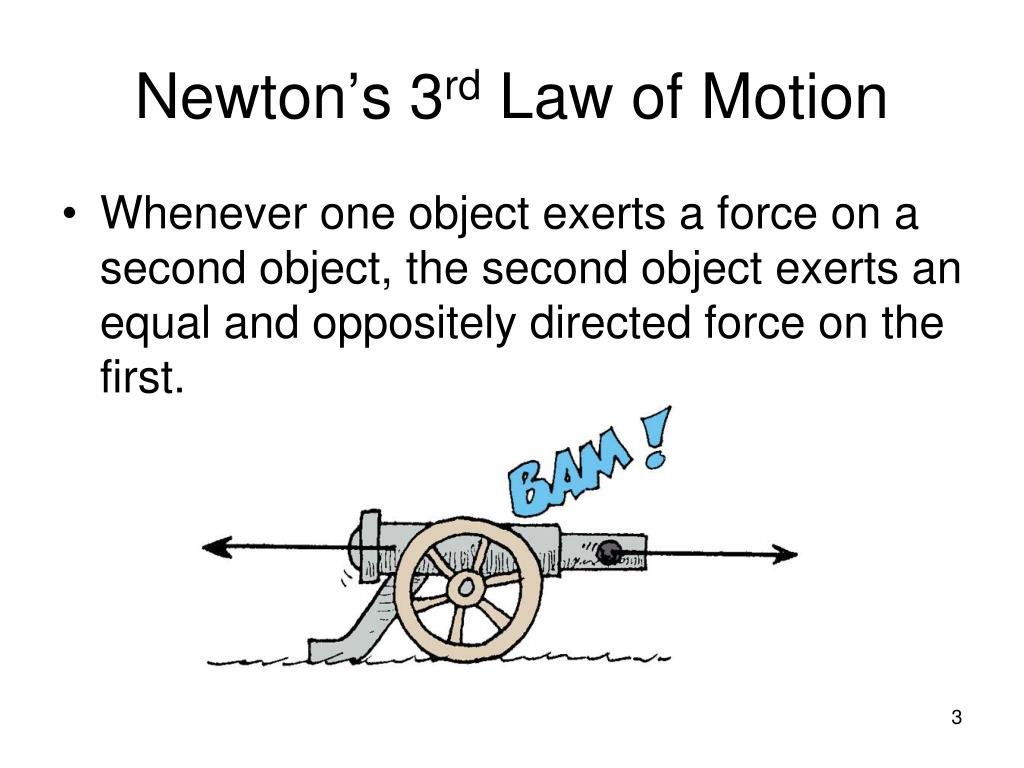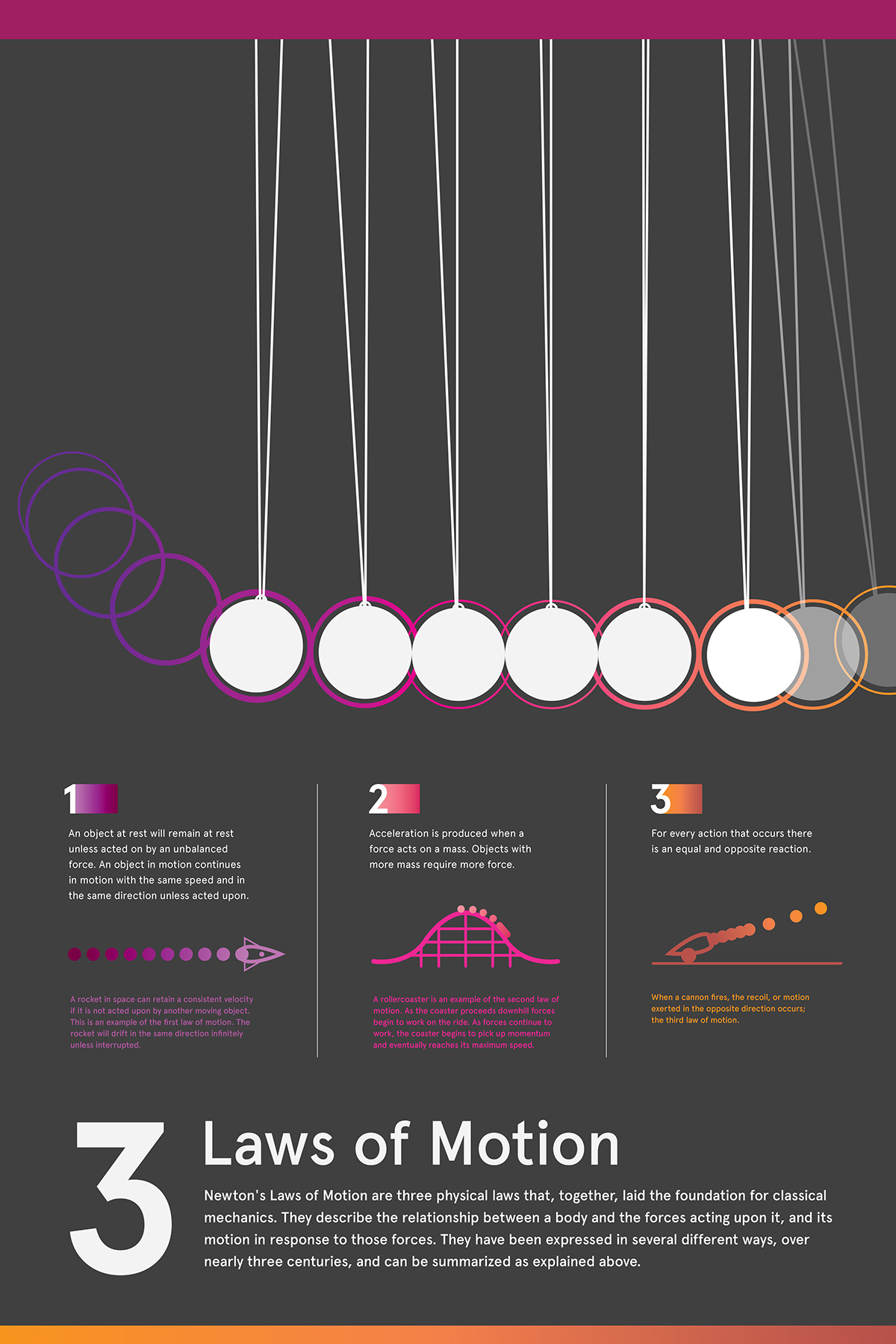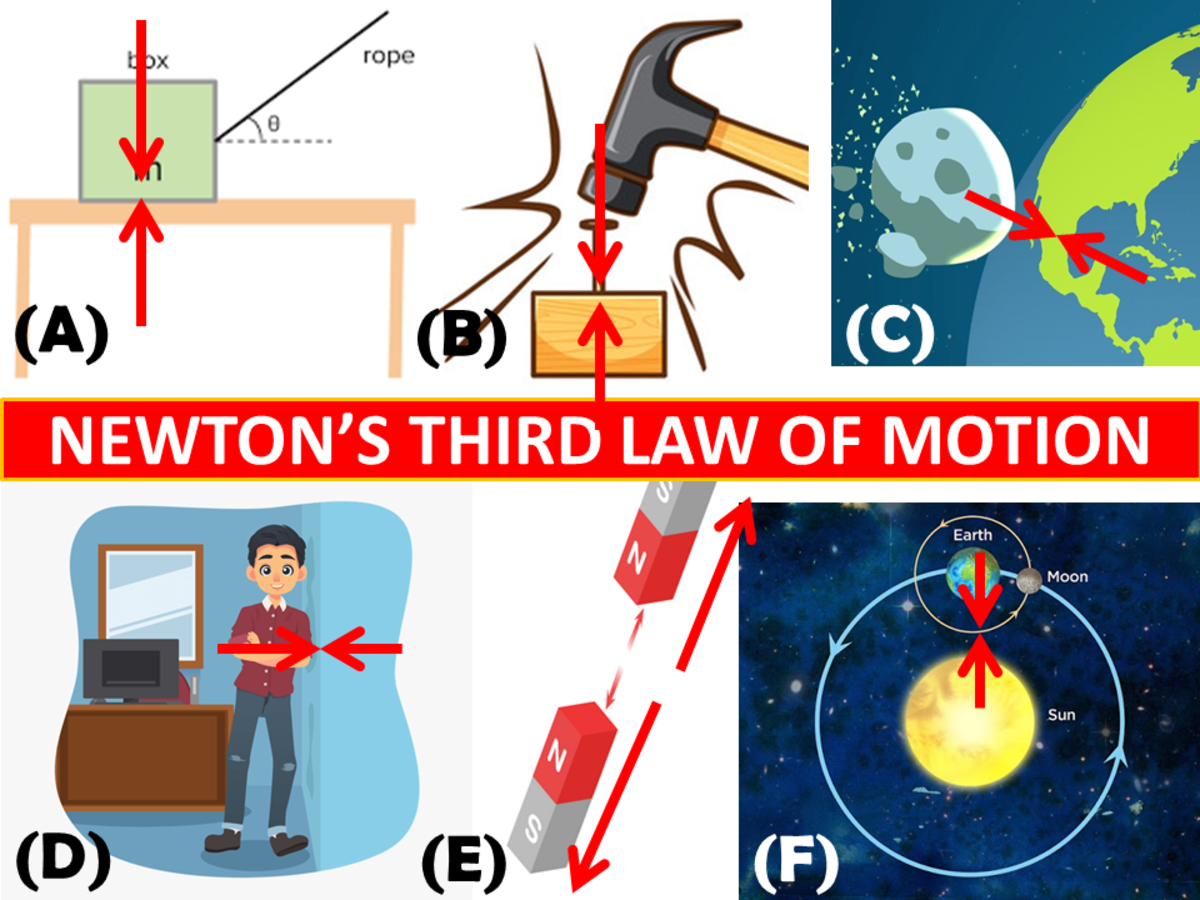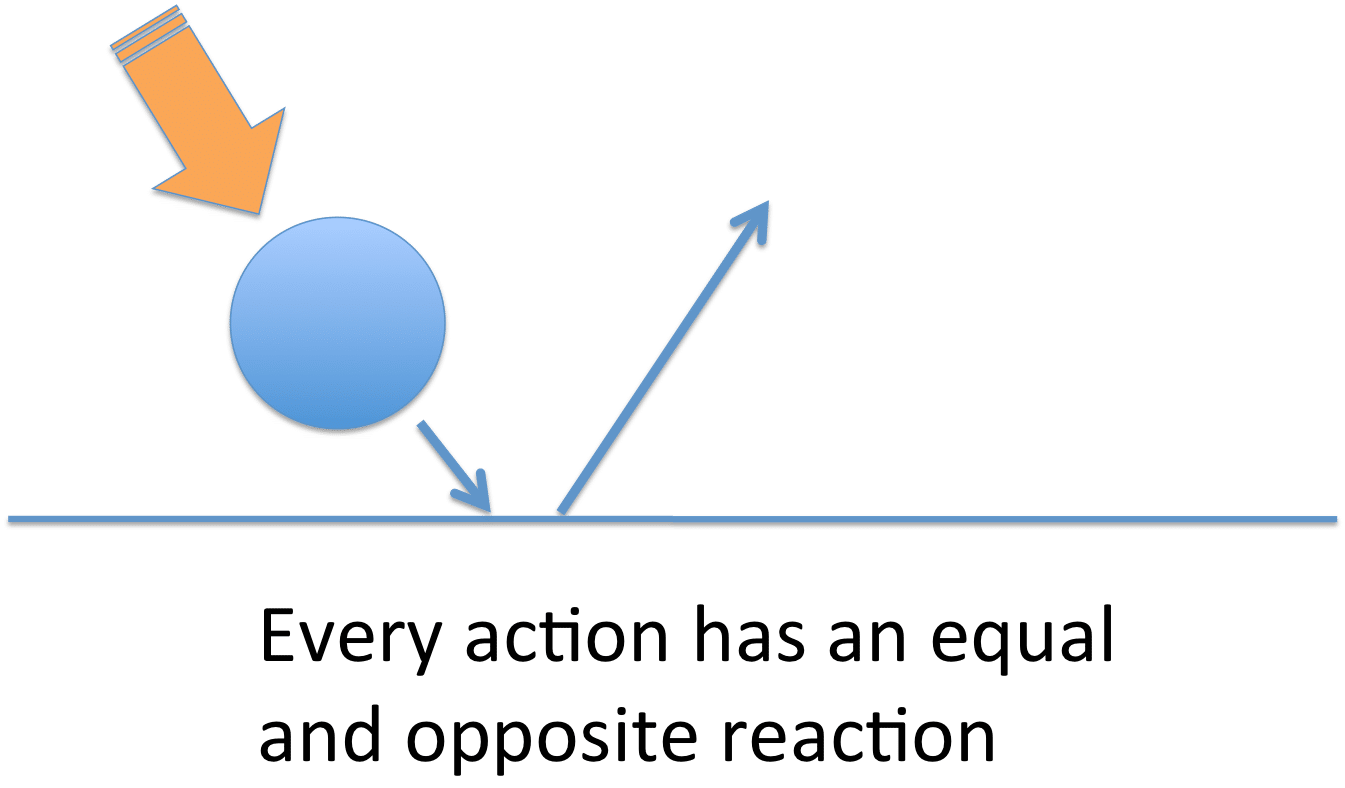Newton S 3Rd Law - If there is action then there will be opposite & equal reaction. This means that when an object exerts a force on. What you are missing is that the action and reaction forces apply to two different objects. 1st law is galileo's and; 2nd is leibniz/coriolis' gravity's inverse square law is hooke's (universally acknowledged, even newton's agiographers, p.152. 3rd law is huygens', considering that; Certainly newton's law of gravitation is proved by taking a limiting case of einstein's field equations. Newton's 3rd law of motion, also known as the law of action and reaction, states that for every action, there is an equal and opposite reaction. Planck's radiation law is a derived law, taking several more fundamental postulates as. Newton used the third law to derive the law of conservation of momentum;[33] from a deeper perspective, however, conservation of momentum is the more fundamental idea (derived.
Newton's 3rd law of motion, also known as the law of action and reaction, states that for every action, there is an equal and opposite reaction. Planck's radiation law is a derived law, taking several more fundamental postulates as. Certainly newton's law of gravitation is proved by taking a limiting case of einstein's field equations. Newton third law states that: 3rd law is huygens', considering that; If there is action then there will be opposite & equal reaction. This means that when an object exerts a force on. What you are missing is that the action and reaction forces apply to two different objects. Newton used the third law to derive the law of conservation of momentum;[33] from a deeper perspective, however, conservation of momentum is the more fundamental idea (derived. 1st law is galileo's and;
Planck's radiation law is a derived law, taking several more fundamental postulates as. Certainly newton's law of gravitation is proved by taking a limiting case of einstein's field equations. Newton third law states that: 2nd is leibniz/coriolis' gravity's inverse square law is hooke's (universally acknowledged, even newton's agiographers, p.152. If there is action then there will be opposite & equal reaction. 1st law is galileo's and; This means that when an object exerts a force on. Newton used the third law to derive the law of conservation of momentum;[33] from a deeper perspective, however, conservation of momentum is the more fundamental idea (derived. What you are missing is that the action and reaction forces apply to two different objects. Newton's 3rd law of motion, also known as the law of action and reaction, states that for every action, there is an equal and opposite reaction.
Newton's Third Law poster by D F Issuu
2nd is leibniz/coriolis' gravity's inverse square law is hooke's (universally acknowledged, even newton's agiographers, p.152. If there is action then there will be opposite & equal reaction. Newton third law states that: Certainly newton's law of gravitation is proved by taking a limiting case of einstein's field equations. What you are missing is that the action and reaction forces apply.
Newton's 3rd Law of Motion YouTube
What you are missing is that the action and reaction forces apply to two different objects. 3rd law is huygens', considering that; This means that when an object exerts a force on. If there is action then there will be opposite & equal reaction. 1st law is galileo's and;
Summary of Newton’s Three Laws of Motion
If there is action then there will be opposite & equal reaction. 1st law is galileo's and; Newton's 3rd law of motion, also known as the law of action and reaction, states that for every action, there is an equal and opposite reaction. 3rd law is huygens', considering that; Newton third law states that:
Newton’s Third Law of Motion
This means that when an object exerts a force on. 3rd law is huygens', considering that; If there is action then there will be opposite & equal reaction. 2nd is leibniz/coriolis' gravity's inverse square law is hooke's (universally acknowledged, even newton's agiographers, p.152. Newton used the third law to derive the law of conservation of momentum;[33] from a deeper perspective,.
PPT 5 Newton’s Third Law of Motion PowerPoint Presentation, free
If there is action then there will be opposite & equal reaction. 2nd is leibniz/coriolis' gravity's inverse square law is hooke's (universally acknowledged, even newton's agiographers, p.152. Newton used the third law to derive the law of conservation of momentum;[33] from a deeper perspective, however, conservation of momentum is the more fundamental idea (derived. 1st law is galileo's and; Planck's.
Newton's Three Laws of Motion Infographic Newton's cradle, Newtons
Newton third law states that: 3rd law is huygens', considering that; 1st law is galileo's and; If there is action then there will be opposite & equal reaction. This means that when an object exerts a force on.
Newton’s Third Law Of Motion Pushing Things Forward Rapids Riders Sports
What you are missing is that the action and reaction forces apply to two different objects. 1st law is galileo's and; 2nd is leibniz/coriolis' gravity's inverse square law is hooke's (universally acknowledged, even newton's agiographers, p.152. Certainly newton's law of gravitation is proved by taking a limiting case of einstein's field equations. If there is action then there will be.
Newton’s third law of motion Presentation Physics
2nd is leibniz/coriolis' gravity's inverse square law is hooke's (universally acknowledged, even newton's agiographers, p.152. This means that when an object exerts a force on. Newton third law states that: Planck's radiation law is a derived law, taking several more fundamental postulates as. 1st law is galileo's and;
Newton S Laws Of Motion Diagram Concept Map Newtons Laws Of Motion
If there is action then there will be opposite & equal reaction. Certainly newton's law of gravitation is proved by taking a limiting case of einstein's field equations. Newton third law states that: 2nd is leibniz/coriolis' gravity's inverse square law is hooke's (universally acknowledged, even newton's agiographers, p.152. Planck's radiation law is a derived law, taking several more fundamental postulates.
The Physics of Fast Execution Organizational Physics by Lex Sisney
2nd is leibniz/coriolis' gravity's inverse square law is hooke's (universally acknowledged, even newton's agiographers, p.152. If there is action then there will be opposite & equal reaction. Newton third law states that: Newton's 3rd law of motion, also known as the law of action and reaction, states that for every action, there is an equal and opposite reaction. This means.
Newton Third Law States That:
If there is action then there will be opposite & equal reaction. This means that when an object exerts a force on. 1st law is galileo's and; Certainly newton's law of gravitation is proved by taking a limiting case of einstein's field equations.
What You Are Missing Is That The Action And Reaction Forces Apply To Two Different Objects.
Planck's radiation law is a derived law, taking several more fundamental postulates as. Newton used the third law to derive the law of conservation of momentum;[33] from a deeper perspective, however, conservation of momentum is the more fundamental idea (derived. 2nd is leibniz/coriolis' gravity's inverse square law is hooke's (universally acknowledged, even newton's agiographers, p.152. 3rd law is huygens', considering that;


.PNG)
.PNG)



.PNG)

